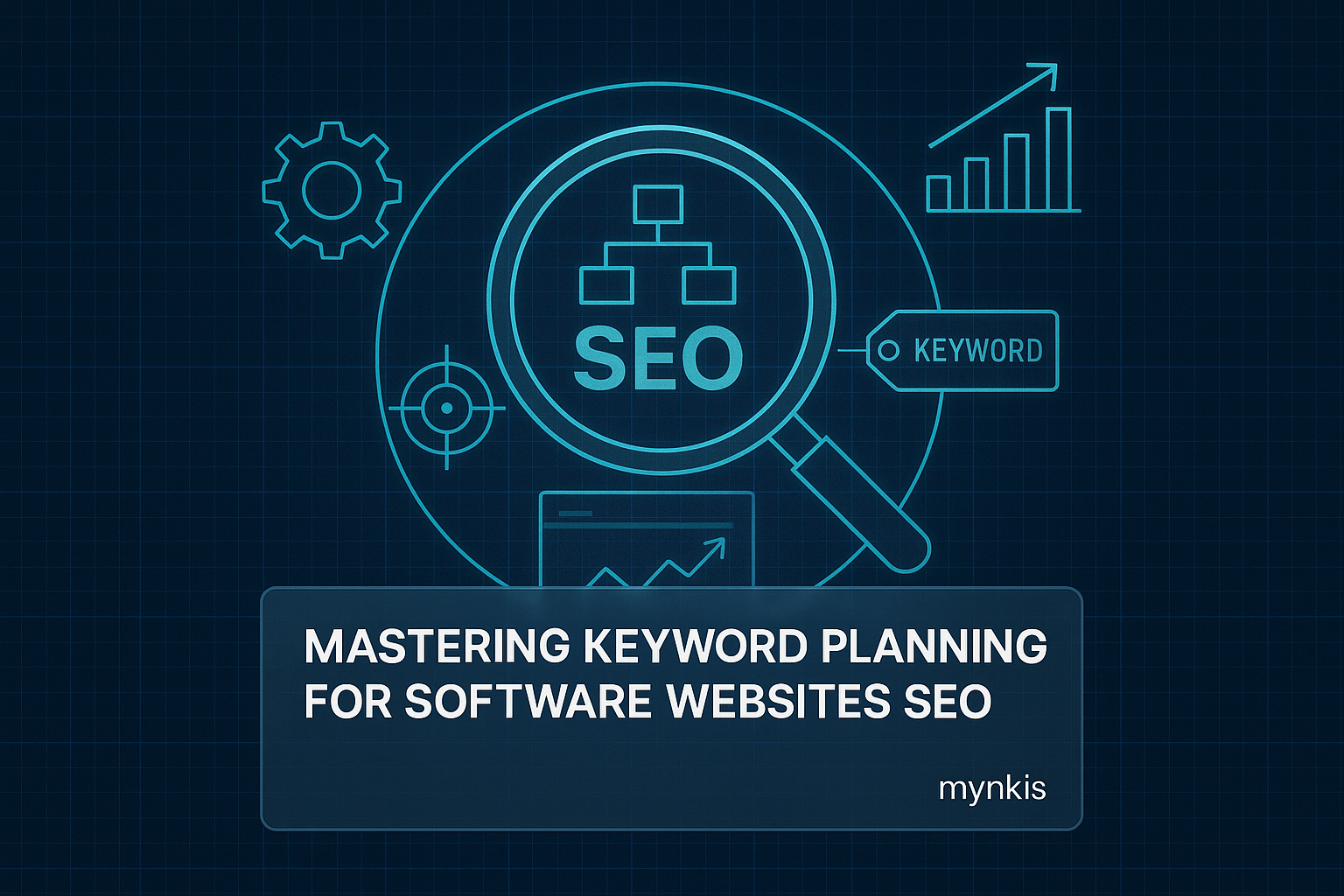Schedule a Demo
Keyword planning is not just a routine task; it's an art that drives the visibility and success of your software company's website. Through strategic keyword selection and implementation, you can elevate your site's relevance and attract the right audience. By the time we're through, you'll understand how to transform your website into a magnet for potential clients through targeted keyword planning.
Keywords are the cornerstone of SEO. They act as the bridge between what people are searching for and the content you provide to meet that need. But not all keywords are created equal. For a software company, selecting keywords that align with your services, from custom software development to enterprise web solutions, requires a deep understanding of your audience's search behavior and your business objectives.
While broad keywords attract a large audience, they often miss the mark in terms of relevance and conversion rates. That's where long-tail keywords come into play. In my work with software company leaders, I've seen long-tail keywords like 'custom software for real estate brokers' drive targeted traffic. They might not rank as highly or get as many clicks as a more generic term, but they bring in visitors with a higher intent to engage with your specific offerings.
Effective keyword planning starts with research. Tools like Google's Keyword Planner, SEMrush, and Ahrefs can uncover the terms and phrases that matter to your audience. These platforms offer insights into search volume, competition levels, and related keywords that can help refine your strategy. By analyzing this data, you can make informed decisions that push your website ahead of the competition in enterprise web solutions searches.
Understanding the intent behind a search query can make or break your SEO efforts. Users might be looking to learn, buy, or compare products. Align your keywords with these intentions. For a software development firm, an intent-focused keyword might be 'best practices in custom software development,' catering to those looking to enhance their knowledge before making a decision.
Once you have your keywords, where you place them matters. Include them naturally in your site's titles, meta descriptions, URLs, and within the content itself. For example, an article page about developing real estate listing platforms should prominently feature terms like 'SEO for property listing websites' to capture the relevant searches. The goal is to use keywords in a way that feels intuitive to the user and satisfies search engine algorithms.
Striking the right balance between high search volume and keyword relevance can be tricky. A common mistake is targeting highly competitive keywords that are tough to rank for, especially for new websites. Instead, start by focusing on more niche, relevant terms within custom software development that your software solutions address directly. This approach can help build your site's authority and visibility step by step.
Your content strategy should revolve around the keywords you've identified. This involves creating blogs, guides, and landing pages that naturally incorporate these terms. For instance, if 'enterprise web solutions for brokers' is a key term for your audience, craft content that addresses the specific needs and pain points of those brokers, while seamlessly including your target keywords.
SEO is not a set-it-and-forget-it task. Regular monitoring of your keyword performance allows you to see which terms are driving traffic and which ones aren't. Use analytics tools to track keyword rankings and tweak your strategy accordingly. Maybe a shift in market trends requires you to reevaluate your focus on custom software development keywords or introduce new ones like 'AI-driven real estate software' to stay relevant.
Keeping an eye on your competitors can provide valuable insights into effective keyword strategies. What terms are they ranking for? How are they using those terms within their content? This analysis can help you find gaps in your own strategy and opportunities to differentiate your software services through more targeted keywords, perhaps emphasizing your expertise in enterprise web solutions.
For software companies with a local presence or targeting local clients, such as real estate brokers, local SEO becomes crucial. Incorporate location-specific keywords like 'real estate software in San Francisco' to enhance visibility in local searches. This focus can improve your reach within target communities and drive more relevant traffic to your site.
Keyword cannibalization occurs when multiple pages on your website target the same keyword, diluting the strength of each page. Avoid this by carefully planning your content and keyword allocation. Each page should have a primary focus, ensuring you don't end up competing against yourself for rankings in 'custom software development' or any other critical keyword.
As search engines evolve, so do the strategies around keywords. With a rising emphasis on voice search and semantic search, understanding user intent beyond single keywords is becoming more important. Preparing for these shifts involves creating content that answers questions and provides comprehensive solutions, aligning with the future trends that will impact how you market your software's enterprise web solutions.
Building trust and authority through your keyword strategy is vital. For software companies, this means grounding your keywords in real industry expertise. For example, by citing case studies or reports from established tech organizations, you can reinforce your standing as a knowledgeable leader in custom software development. Remember, though, to base any claims on solid research, acknowledging that results can vary and professional advice is often needed for complex scenarios.
The journey to higher search rankings begins with meticulous keyword planning. By understanding and utilizing the principles outlined here, you're poised to improve your software company's digital presence. Focus on user intent, relevance, and the evolving nature of SEO to ensure your website continues to attract and engage the right audience effectively.
